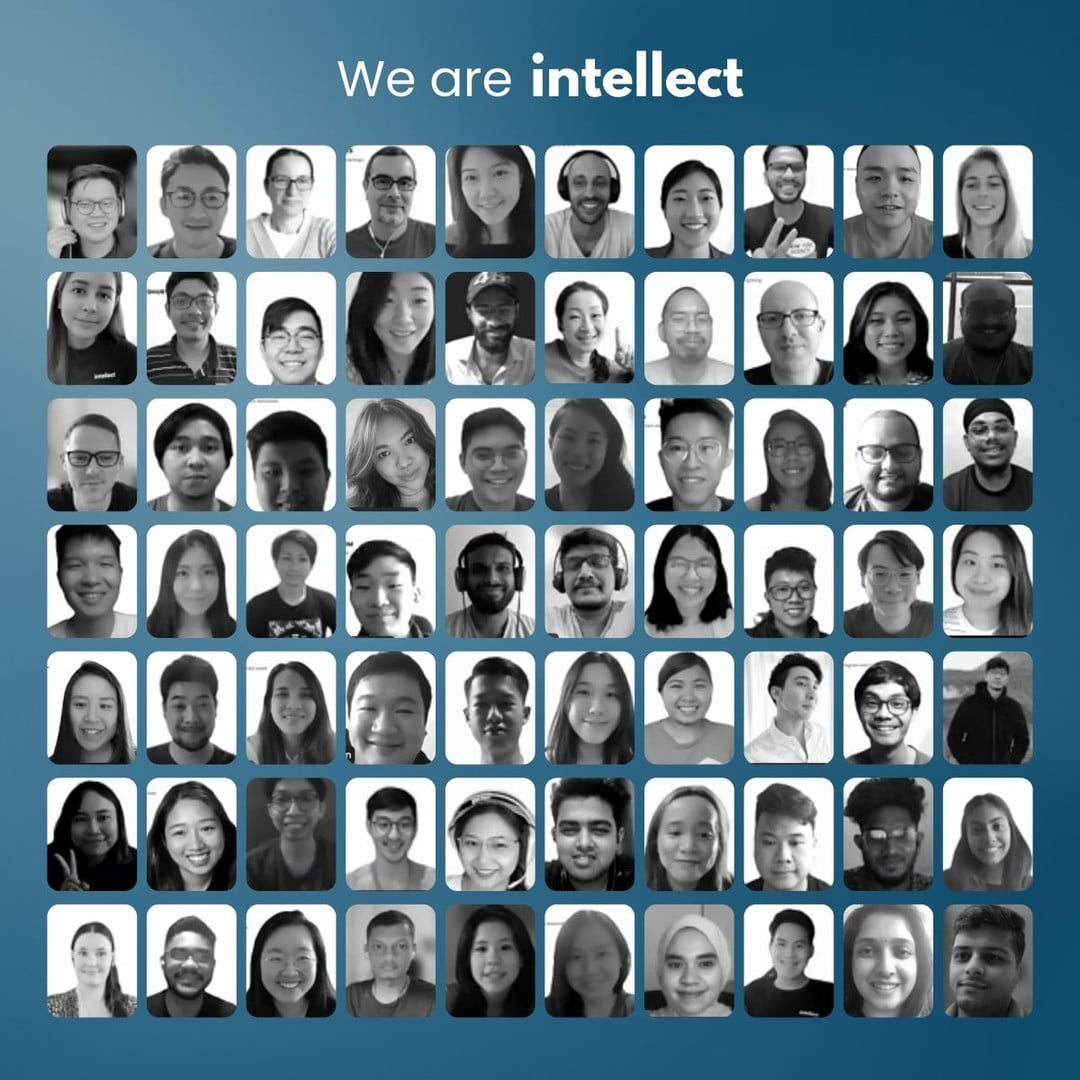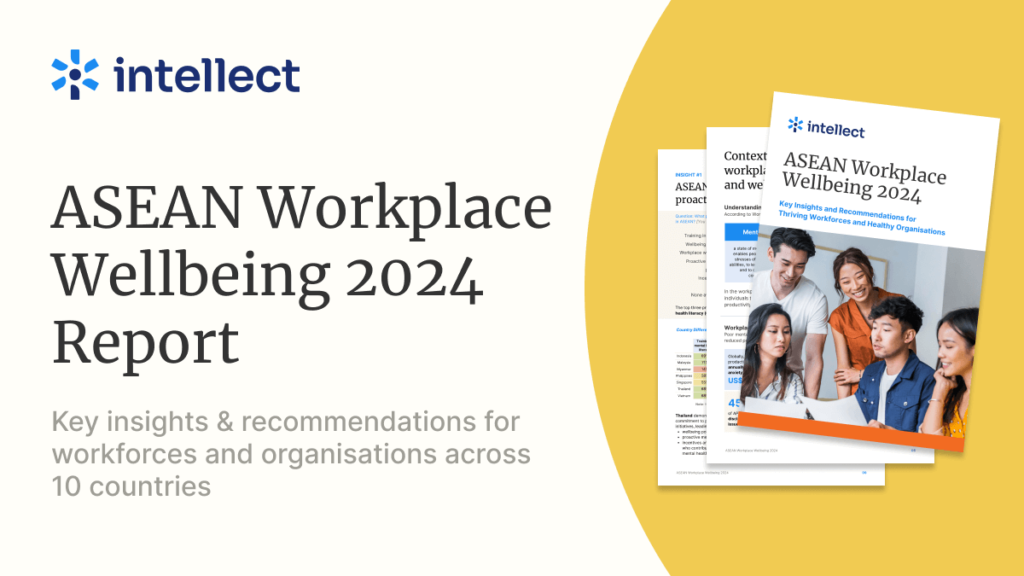We know that the pandemic has exacerbated symptoms of anxiety and depression for many in Singapore, but what we didn’t know—at least until Duke-NUS Medical School and the Institute of Mental Health (IMH) surveyed over 5,000 Singaporeans above 21 years old between April and June 2022—is the hefty price tag they wield on the nation. The result? A staggering S$16 billion per year. To put it in perspective, this accounts for roughly 2.9% of Singapore’s entire gross domestic product (GDP).
According to the researchers, this isn’t solely attributed to no-brainers like absenteeism and productivity, but also the underutilisation of healthcare resources. In an ideal world, employees who are struggling with their mental health would reach out to HR to learn more about their EAP. But reality is far from perfect, and mental health stigma remains very much present in Asian cultures. Most people don’t reach out for fear of being judged: If I can’t handle stress, it must mean I’m a poor employee.

How can we take matters into our own hands while systemic change is underway? The answer: Leverage resources we already possess, like a workforce that is quickly awakening to the importance of wellbeing.
Line managers and team members—especially wellbeing ambassadors—can serve as a critical resource in identifying colleagues needing help and providing some initial assistance. This is where Mental Health First Aid™ (MHFA) comes in.
What is Mental Health First Aid™?
Mental Health First Aid™ empowers your employees to be the first responders to coworkers who may be struggling with their mental health. The course equips them with the knowledge and culturally-relevant skills to confidently recognise stressors, approach coworkers in need, and guide them towards appropriate care in a timely manner.
There are two stakeholders ideal for an Mental Health First Aid™ program, starting with people managers. It doesn’t matter if a manager is in charge of one person or many—they have a big role in the most important interactions that affect an employee’s career. This puts them in a unique position to serve as a first line of defence against the burnout epidemic.
Use case: People managers
Take an employee who has always been punctual, but has now started to arrive late and even be absent from work consistently. A manager might feel let down and criticise the employee for tarnishing their good record, by urging them to “get themselves together” and “buck up”.

An MHFA-trained manager might handle this situation differently. Instead of immediately resorting to a “tough love” approach, they would consider any underlying reasons behind their team member’s uncharacteristic lateness. By initiating communication with empathy and providing support, the employee is more likely to share their challenges (for all we know, they may have been diagnosed with a health condition recently) and be open to available resources and assistance. This might involve using self-help methods or engaging in sessions with a coach, counsellor, or therapist.
Here’s another example: an employee is overworked but wouldn’t ask for support as they pride themselves on a “can-do” attitude. Instead of taking their word at face value, a manager trained in Mental Health First Aid™ may notice signs of burnout and intercept total exhaustion by adjusting the demands of work for the time being. This might involve incorporating work-from-home days and mandatory offline hours, enabling the employee to restore their wellbeing before hitting the ground running again.
Use case: Team members
In hierarchical environments, it will take time before employees feel comfortable opening up to people managers—the very individuals who can shape their career paths. Evidence indicates that people are more likely to seek help when encouraged by their peers – the second group who can benefit from Mental Health First Aid™.
Wellbeing ambassadors, in particular, possess untapped potential but are rarely given professional training. They don’t know how to spot colleagues who may be struggling, much less find a way to help them while protecting their working relationship.
Consider a team member who has just been informed that they won’t be receiving a promotion this year. In such a situation, the last person they’d likely want to confide in is their line manager, who delivered the disappointing news.

Colleagues who observe this team member returning to their desk with teary eyes might be hesitant to approach them for fear of embarrassing them. However, someone who is certified in Mental Health First Aid™ would feel more self-assured in initiating contact. In fact, they might even prevent what could have turned into a resignation letter that very day.
Here’s another example: a coworker who has recently been diagnosed with Generalised Anxiety Disorder (GAD) feels uneasy about informing their supervisor, fearing it might hinder their career advancement. Given that colleagues aren’t part of this hierarchical dynamic, they can offer support and contribute to destigmatising mental health conversations in the workplace. Through Mental Health First Aid™, they can learn active listening and empathic responding, promoting open discussions and encouraging their team members to seek help.
Clearly, Mental Health First Aid™ training doesn’t merely provide your workforce with mental health literacy and practical skills. It enhances resilience, psychological safety, and the overall organisational culture.
Intellect – the sole licensed provider of MHFA in Singapore
As we speak, Mental Health First Aid™ has trained over five million people across 24 countries since 2000. We’re proud to announce that in Singapore, Intellect is the sole licensed Mental Health First Aid™ provider in Singapore.
In addition to providing local access to an internationally recognised program with years of research backing, Intellect customises the program to align with local and regional cultural nuances. This is achieved through collaboration with local experts and drawing insights from the diverse experiences of individuals.
The program comprises a day of e-learning and another of on-site learning, and is facilitated by instructors who have undergone rigorous training and are accredited by MHFA International. Upon completion, participants earn a Mental Health First Aider Certificate of Accreditation, which is valid for three years.
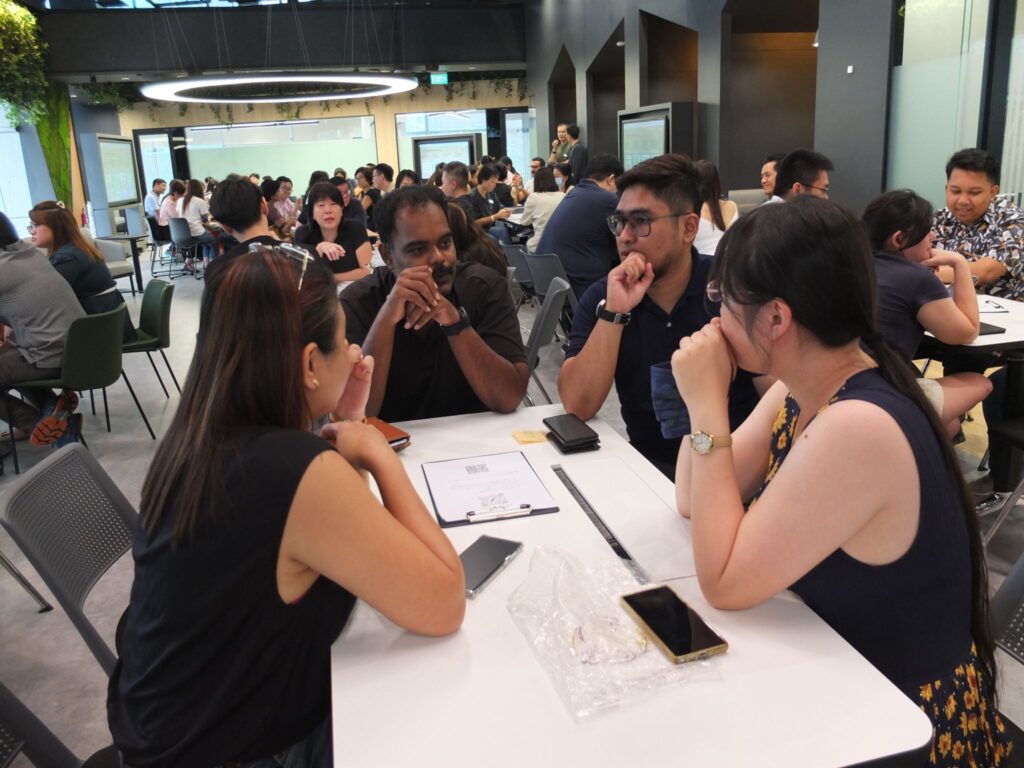
What makes Intellect’s Mental Health First Aid different?
Compared to alternatives in the market, such as Red Cross Singapore’s Psychological First Aid workshop and the First Aid in Mental Health course by the Singapore Emergency Responder Academy, Intellect’s Mental Health First Aid™ course differs in the following areas:
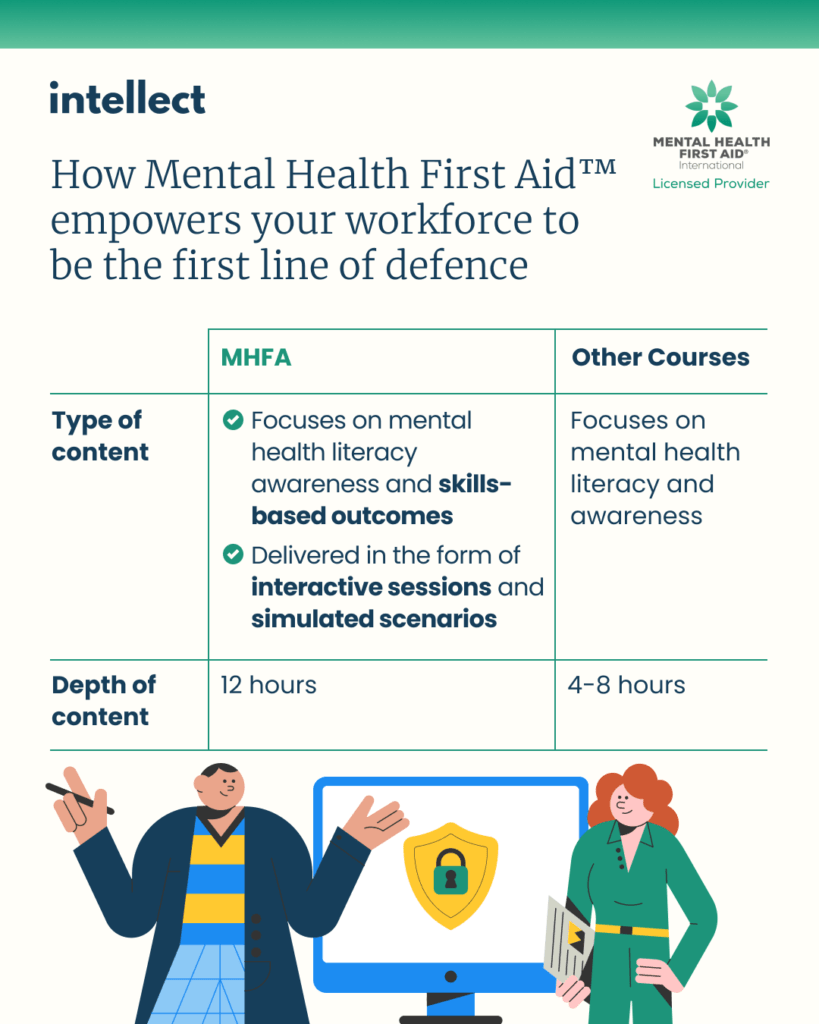
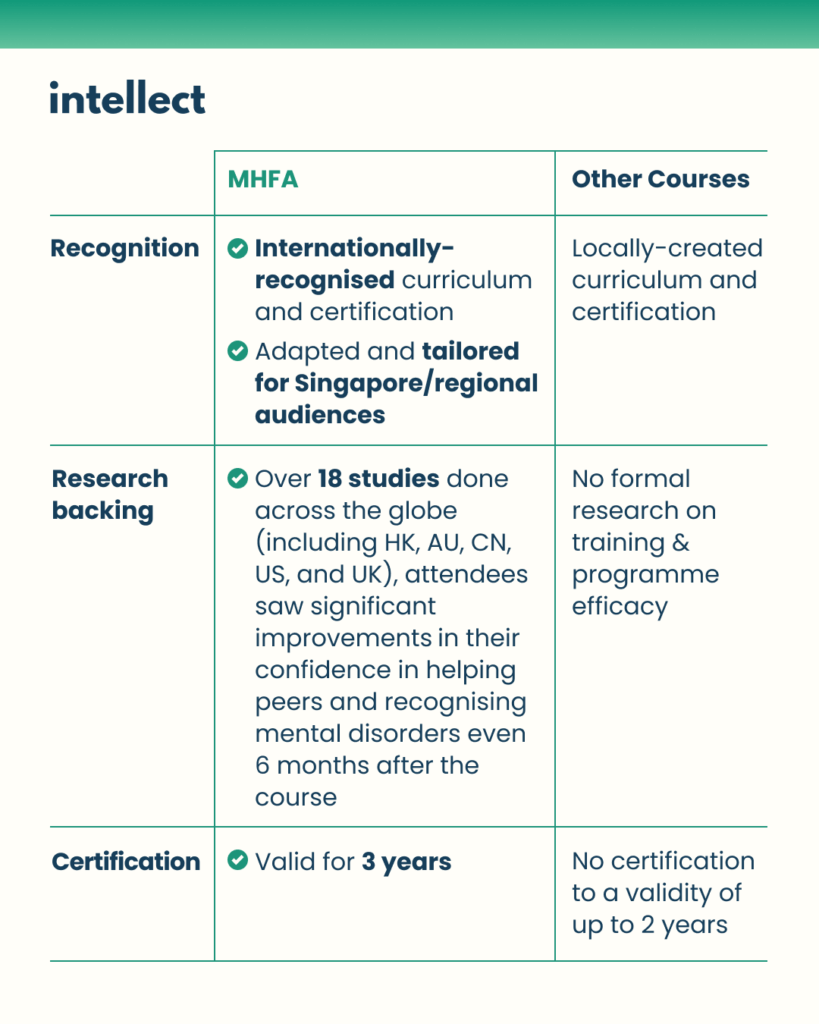
Ultimately, organisations can’t go wrong by enhancing their employees’ skills to support each other. However, since resources are being invested in such programs, it’s important to choose wisely to ensure the investment pays off in terms of employee wellbeing, engagement, and performance.
Mental Health First Aid™ stands out as the gold standard in its category, providing both online and offline instruction to transform theory into action, along with internationally recognised accreditation that offers lasting value for the initial investment.
Discover more about the impact of Mental Health First Aid™ here.

